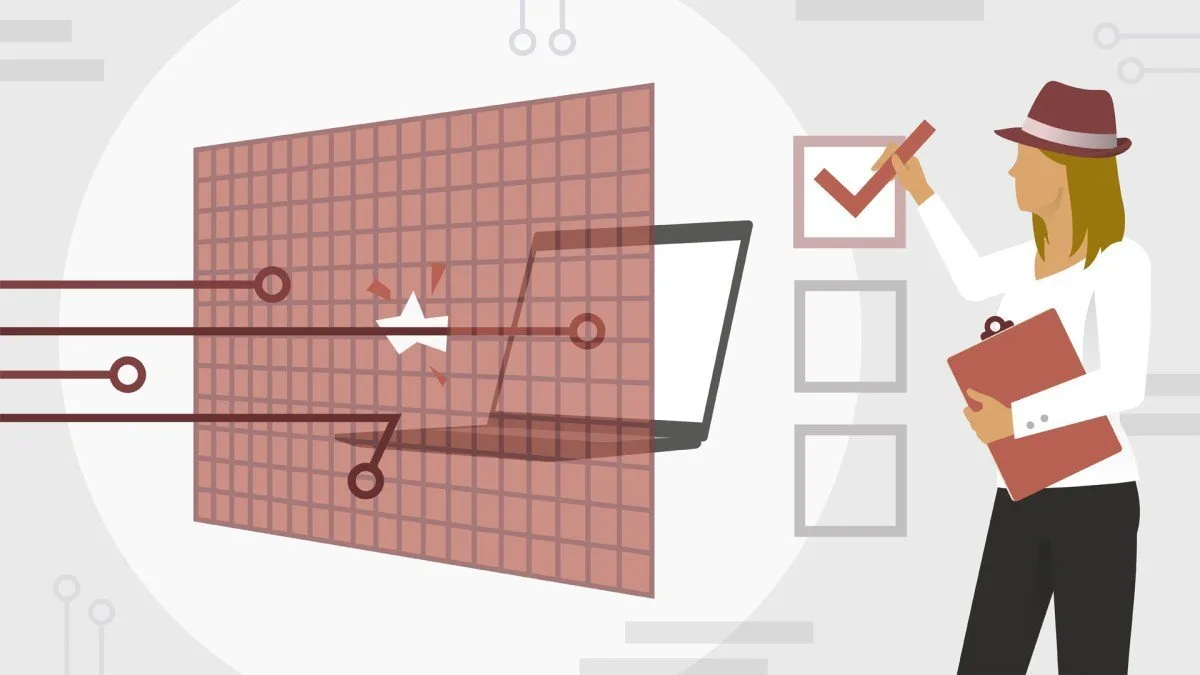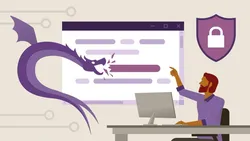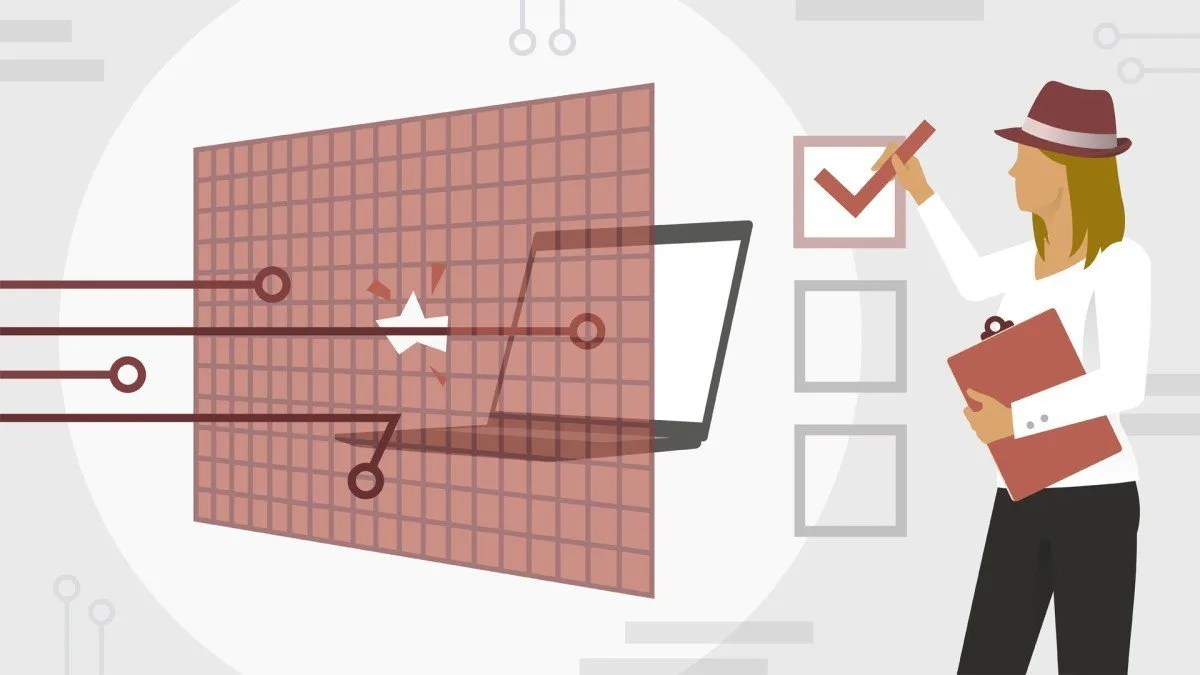
Kali linux Installation and Demo 
This course provides an introduction to Kali Linux installation and demo. It covers VirtualBox 6.1 2020 installation on Windows 10, Ubuntu Desktop 20.04 LTS installation on VirtualBox 6.1 2020, NAT Network demo, and Host Only Network on VirtualBox 6.1 and 2 demo. It is a great way to learn the basics of cyber security and gain hands-on experience with Kali Linux. ▼
ADVERTISEMENT
Course Feature
![]() Cost:
Cost:
Free
![]() Provider:
Provider:
Youtube
![]() Certificate:
Certificate:
Paid Certification
![]() Language:
Language:
English
![]() Start Date:
Start Date:
On-Demand
Course Overview
❗The content presented here is sourced directly from Youtube platform. For comprehensive course details, including enrollment information, simply click on the 'Go to class' link on our website.
Updated in [May 25th, 2023]
This course provides an overview of Kali Linux installation and demo. Participants will learn how to install VirtualBox 6.1 2020 on Windows 10, as well as how to install Ubuntu Desktop 20.04 LTS on VirtualBox 6.1 2020. Additionally, participants will learn how to create a NAT Network of VM's in VirtualBox 6.1, as well as how to create a Host Only Network on VirtualBox 6.1 and 2. By the end of the course, participants will have a comprehensive understanding of Kali Linux installation and demo.
[Applications]
The application of this course can be seen in the field of cyber security. After completing this course, users can use Kali Linux to create a NAT network of virtual machines in VirtualBox 6.1, as well as a host-only network. This can be used to test and develop security protocols and applications. Additionally, users can use the knowledge gained from this course to create a secure environment for their own networks.
[Career Paths]
1. Cyber Security Analyst: Cyber Security Analysts are responsible for identifying, analyzing, and responding to cyber security threats. They use a variety of tools and techniques to detect and prevent malicious activity. As the demand for cyber security professionals continues to grow, the need for Cyber Security Analysts is expected to increase significantly.
2. Network Security Engineer: Network Security Engineers are responsible for designing, implementing, and maintaining secure networks. They use a variety of tools and techniques to ensure that networks are secure and protected from malicious activity. As the demand for network security professionals continues to grow, the need for Network Security Engineers is expected to increase significantly.
3. Penetration Tester: Penetration Testers are responsible for testing the security of networks and systems. They use a variety of tools and techniques to identify and exploit vulnerabilities in order to assess the security of a system. As the demand for cyber security professionals continues to grow, the need for Penetration Testers is expected to increase significantly.
4. Security Architect: Security Architects are responsible for designing and implementing secure systems. They use a variety of tools and techniques to ensure that systems are secure and protected from malicious activity. As the demand for cyber security professionals continues to grow, the need for Security Architects is expected to increase significantly.
[Education Paths]
1. Bachelor's Degree in Cyber Security: A Bachelor's Degree in Cyber Security is a great way to gain the knowledge and skills needed to protect organizations from cyber threats. This degree program typically covers topics such as network security, cryptography, computer forensics, and ethical hacking. With the increasing demand for cyber security professionals, this degree path is becoming increasingly popular.
2. Master's Degree in Information Security: A Master's Degree in Information Security is a great way to gain the advanced knowledge and skills needed to protect organizations from cyber threats. This degree program typically covers topics such as network security, cryptography, computer forensics, and ethical hacking. With the increasing demand for cyber security professionals, this degree path is becoming increasingly popular.
3. Doctorate Degree in Cyber Security: A Doctorate Degree in Cyber Security is a great way to gain the highest level of knowledge and skills needed to protect organizations from cyber threats. This degree program typically covers topics such as network security, cryptography, computer forensics, and ethical hacking. With the increasing demand for cyber security professionals, this degree path is becoming increasingly popular.
4. Certificate in Cyber Security: A Certificate in Cyber Security is a great way to gain the basic knowledge and skills needed to protect organizations from cyber threats. This certificate program typically covers topics such as network security, cryptography, computer forensics, and ethical hacking. With the increasing demand for cyber security professionals, this degree path is becoming increasingly popular.
Course Provider

Provider Youtube's Stats at AZClass
Discussion and Reviews
0.0 (Based on 0 reviews)
Explore Similar Online Courses

Learn Objective C Tutorial For Beginners

Analytics for Decision Making

Python for Informatics: Exploring Information

Social Network Analysis

Introduction to Systematic Review and Meta-Analysis

The Analytics Edge

DCO042 - Python For Informatics

Causal Diagrams: Draw Your Assumptions Before Your Conclusions

Whole genome sequencing of bacterial genomes - tools and applications

Learning Kali Linux

Learning Kali Linux on Windows

Learning Kali Linux
 Related Categories
Related Categories
Quiz
 Submitted Sucessfully
Submitted Sucessfully
1. What is the version of VirtualBox used in this course?
2. What is the version of Ubuntu used in this course?
3. What type of network is demonstrated in this course?


Start your review of Kali linux Installation and Demo